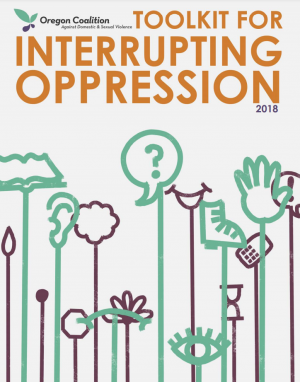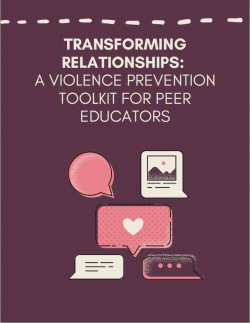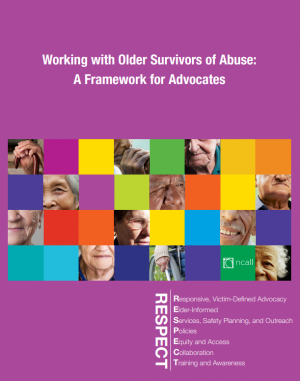Resources Library: Prevention
Start a Search:
Toolkit for Interrupting Oppression - from the Oregon Coalition Against Domestic and Sexual Violence

The Oregon Coalition Against Domestic and Sexual Violence has a rich history of anti-oppression work, supporting and aligning with those who dismantle oppression and build safer communities. Amidst this ongoing work, questions arise as to how we can do more strategic interruptions, how we intervene with an awareness of power (ours and others), and how we can avoid harming or re-victimizing ourselves and others in the process of doing anti-oppresion work. This project seeks to explore these questions while adding nuance to and expanding on the anti-oppression work and interruption tools man of us already use.
This material was created by the OCADSV in the hopes of increasing confidence and capability to intervene when witnessing harm, providing some options, and sparking problem-solving creativity. To view the resource, click the file below.
Transforming Relationships: A Violence Prevention Toolkit for Peer Educators

This document serves as a tool for young adults and supportive professional staff who want to cultivate safer thriving communities on their college campuses. The goal is to empower student leaders to use their knowledge and skills to make transformative change, which will aid their own development as well as pave the way for future classes of students to do the same. The toolkit dives into foundational knowledge, key frameworks, and activities for peer educators to use in their programming.
Working with Older Survivors of Abuse: A Framework for Advocates

The National Clearinghouse on Abuse in Later Life (NCALL), a project of End Domestic Abuse Wisconsin, has been the sole technical assistance provider on the intersection of domestic violence, sexual assault, and elder abuse for the Office on Violence Against Women (OVW) since 1999. Through advocacy and education, NCALL strives to challenge and change the beliefs, policies, practices, and systems
that allow abuse to occur and continue. NCALL aims to improve victim safety by increasing the quality and availability of victim services and support.
As part of the shared mission to enhance the safety and quality of life of victims across the lifespan, NCALL and OVW created this toolkit in partnership with local advocates and others who serve older victims. To gather data for this toolkit, NCALL and OVW conducted a literature review, held national roundtables in 2015 and 2016 with subject matter experts to frame major issues, interviewed key stakeholders, and conducted an external review process. In addition, NCALL conducted videotaped interviews with numerous subject matter experts on key issues and topics covered in this toolkit. Hyperlinks to the video segments created from those interviews are interspersed throughout this summary report document.

